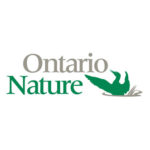Ontario Nature Blog
Receive email alerts about breaking conservation
and environmental news.
© Lora Denis
Georgian Bay Island wetland © Joe Crowley
Communities and conservation groups across Ontario have been sounding the alarm about the province’s rollback of wetland protections for years. However, Canada’s latest report to the Ramsar Convention – a global wetland conservation treaty – seems to tell a different story.
The Ramsar Convention is the only global treaty that focuses entirely on wetlands, recognizing the many essential benefits they provide such as cleaning our water, preventing floods and providing homes for countless species. The goal of the Convention is to stop wetland loss and ensure their “wise use” through local, national and international cooperation.
From July 23 to 31, countries are gathering in Zimbabwe to assess how well they are living up to their promises to protect wetlands and the species that depend on them.

As a signatory to the Ramsar Convention, Canada must work towards the Convention’s goals and provide a national progress report every three years.
Ontario plays a huge part in achieving these commitments, as the province is home to almost a quarter of the nation’s wetlands. Unfortunately, the provincial government has been chipping away at wetland protections for years.

Ontario’s actions fall short of the story told in Canada’s 2025 progress report. To help clarify, we debunked three of the report’s biggest myths about Ontario:
Reality: The Government of Ontario has repeatedly undermined Conservation Authorities in recent years. From blocking their ability to weigh in on the impacts of development on pollution or land conservation, to fast-tracking development by overriding their decisions, the provincial government has made it harder than ever for them to support the wise management of wetlands in Ontario.
Reality: Ontario lags far behind other provinces in its contributions to Canada’s national protected areas target. The province hid recommendations from its own expert working group outlining how to get there and abandoned the provincial wetland conservation strategy, signaling there is no meaningful plan to protect wetlands or support Canada’s international commitments. The province has also failed to allocate funding to support the Ontario Biodiversity Strategy.
Reality: The provincial government allows major projects to bypass the environmental assessment process. For example, Highway 413, the Bradford Bypass and the Eagle’s Nest mine will all move ahead without comprehensive assessments, threatening wetlands like the Holland Marsh and James Bay Lowlands. The passing of Bill 5 also allows the province to create “special economic zones” where provincial laws and regulations, like the Environmental Assessment Act, do not apply.

As the 2025 Ramsar talks continue, the world is watching. The unfortunate reality is that Ontario is not the wetland conservation leader it was presented as. However, the province can still change course.
A clear first step is to repeal Bill 5. Then, the Ontario Government must continue to restore and strengthen provincial wetland protections in a way that respects Indigenous rights and governance.
If Canada is going to meet its wetland conservation commitments at home and on the global stage, Ontario must step up to protect the wetlands that we all depend on.
By Sarah Syed and Sarah Hasenack

Sarah (she/her) is a Wetland Conservation Intern at Ontario Nature, where she works to protect and restore vital ecosystems across the province through digital storytelling and advocacy initiatives. She is passionate about empowering communities through environmental education. Sarah also sits on the UN-Habitat Youth Advisory Board as a representative from Canada.

Sarah (she/her) is a Conservation Campaigns Coordinator at Ontario Nature and has been working on the organization’s wetlands campaign since 2022. She has a passion for the protection and appreciation of nature fostered through years of family camping and hiking trips, supported by two Environmental Sciences degrees completed at the University of Guelph.

Laurel Creek Conservation Area © Carl Hiebert / Grand River Conservation Authority
Climate change demands we take our wetlands seriously. !!
SAVE our WETLANDS!!